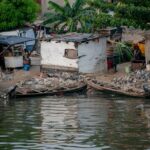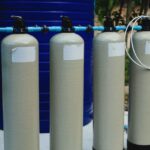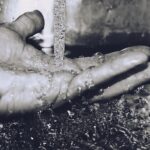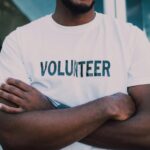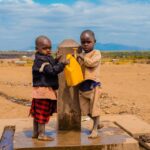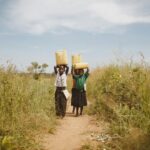Is Bottled Water Always the Safer Choice in Ghana?
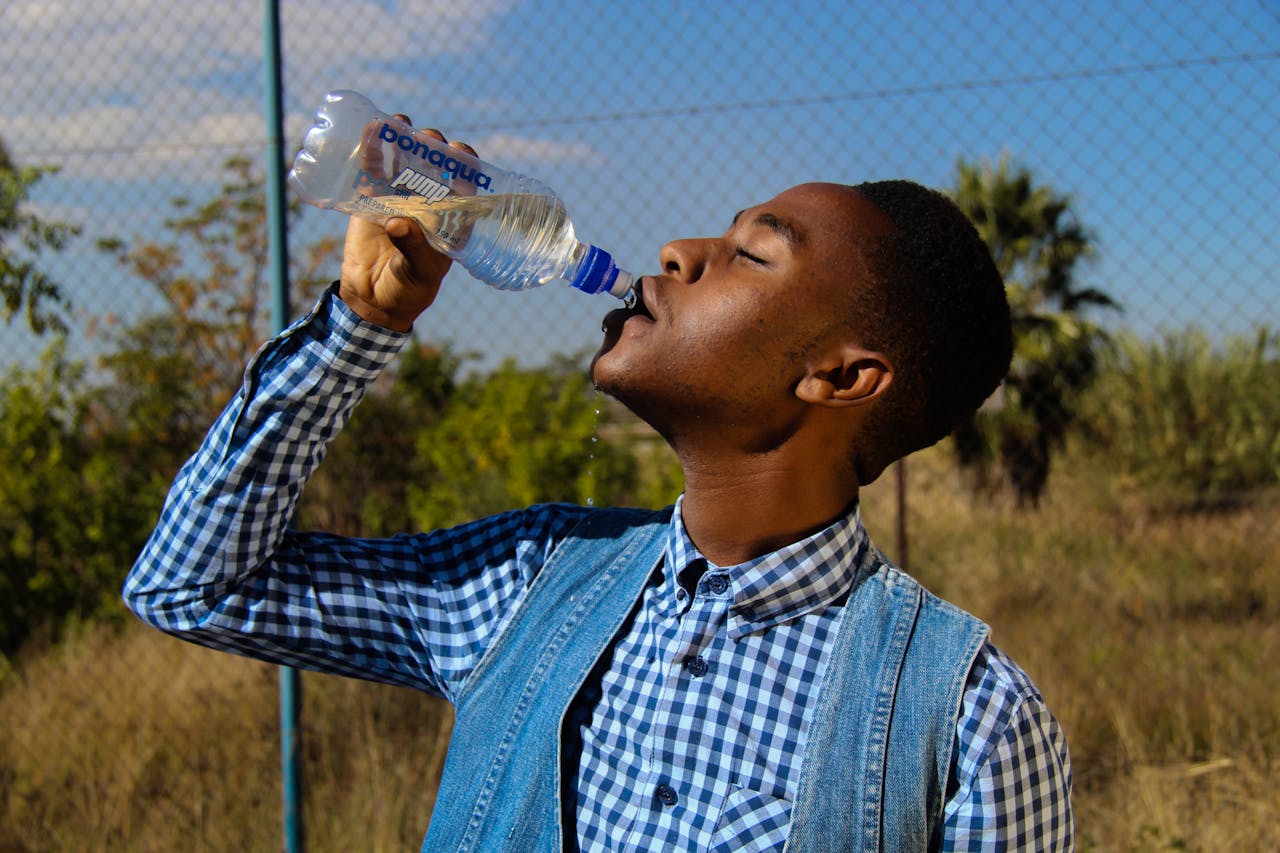
Many people in Ghana rely on bottled water because they believe it is always the safest option. With concerns about tap and well water safety, bottled water is seen as a clean and trusted source. But is bottled water really the best and safest choice?
Let’s take a closer look.
Why Bottled Water is Popular in Ghana
Bottled water is widely used in Ghana for a few main reasons:
- Concerns About Tap and Well Water – Many areas in Ghana struggle with clean water access. Tap water is not always available or safe to drink, and well water can be contaminated. Because of this, people turn to bottled water as a more reliable option.
- Convenience – Bottled water is easy to find and carry around. Whether at home, work, or on the go, people prefer the ease of grabbing a bottle rather than boiling or filtering water.
- Perceived Safety – There is a belief that bottled water is always cleaner and healthier than other water sources. Since it comes in a sealed bottle, many people assume it has gone through strict safety checks.
How Bottled Water is Regulated in Ghana
To ensure bottled water is safe for drinking, there are rules in place. The Food and Drugs Authority (FDA) and the Ghana Standards Authority are responsible for checking the quality of bottled water.
Here’s how regulation works:
- Approval Process – Companies must get approval before selling bottled water. This includes testing the water for harmful substances.
- Regular Inspections – Officials inspect water production sites to make sure they meet safety standards.
- Product Labeling – Bottled water must have proper labels showing important details, like production and expiration dates.
However, despite these regulations, some bottled water brands still fail to meet safety standards due to weak enforcement or illegal production.
Is Bottled Water Always Safe?
While bottled water is meant to be safe, there are times when it can still be unsafe to drink. Some risks include:
- Fake and Unregulated Brands – Some companies produce bottled water without proper approval, selling unsafe products to the public.
- Contamination During Storage – If bottled water is stored in hot places (like under the sun for long hours), harmful chemicals from the plastic bottle can leak into the water.
- Expired and Tampered Bottles – Expired bottled water can develop bacteria, and some bottles may be refilled with untreated water and resold.
For these reasons, bottled water is not always the safest option. It’s important to check labels, buy from trusted brands, and store bottles properly.
Alternatives to Bottled Water in Ghana
While bottled water is widely used, there are other safe drinking water options in Ghana, including:
- Sachet Water (“Pure Water”) – Small plastic sachets of purified water are affordable and widely available. However, not all brands meet safety standards, so it’s important to choose trusted ones.
- Filtered Tap Water – In areas where tap water is available, using water filters can help remove dirt and bacteria, making it safer to drink.
- Boiled Water – Boiling water before drinking is a simple and effective way to kill harmful bacteria and viruses.
- Community Water Stations – Some areas have public water stations where treated water is sold at a lower price than bottled water.
The Cost of Bottled Water vs. Other Options
Bottled water is much more expensive than other drinking water sources in Ghana. Here’s how it compares:
- Bottled Water – A small bottle can cost between GH₵2 to GH₵5, while a large one can be over GH₵10.
- Sachet Water – A whole bag of sachet water (30-50 sachets) costs between GH₵8 to GH₵15, making it a cheaper option.
- Filtered Water – Buying a water filter may cost more at first, but in the long run, it’s much cheaper than buying bottled water every day.
- Boiled Water – This is the least expensive option, especially for households with access to tap or borehole water.
For many families, the high cost of bottled water makes it difficult to rely on as a main source of drinking water.
Environmental Impact of Bottled Water in Ghana
Bottled water is convenient, but it also creates serious environmental problems:
- Plastic Waste – Used plastic bottles often end up in streets, gutters, and water bodies, causing pollution. Ghana struggles with plastic waste management and most plastic bottles are not properly recycled.
- Clogged Drains and Flooding – When plastic waste blocks drainage systems, it increases the risk of floods, especially in cities like Accra.
- Harm to Marine Life – When plastic bottles end up in rivers and the ocean, they harm fish and other aquatic animals.
- High Carbon Footprint – Producing and transporting bottled water uses a lot of energy and contributes to climate change.
Because of these issues, finding sustainable water options is important for Ghana’s future.
How to Make Safer Choices When Buying Bottled Water
If you choose to drink bottled water, here are some ways to ensure it is safe:
- Check the Label – Make sure the water is registered with the Food and Drugs Authority (FDA). Look for an expiration date and batch number.
- Buy from Trusted Brands – Stick to well-known and approved bottled water brands. Avoid buying water from unknown roadside vendors.
- Inspect the Bottle – Ensure the seal is not broken and the water inside is clear. Avoid bottles with floating particles or a bad smell.
- Store Properly – Keep bottled water in a cool place, away from direct sunlight, to prevent chemicals from leaking into the water.
Government Regulations on Bottled Water in Ghana
The Ghanaian government has put in place several regulations to ensure bottled water is safe for consumption. These regulations help protect consumers from harmful or low-quality products.
- Food and Drugs Authority (FDA) Standards – The FDA is responsible for monitoring and approving bottled water brands in Ghana. Companies must meet hygiene and safety standards before selling their products.
- Ghana Standards Authority (GSA) Certification – The GSA sets quality standards for bottled water to ensure it is free from harmful bacteria and chemicals.
- Regular Inspections – Government agencies conduct periodic checks on water production facilities to confirm they meet safety requirements.
- Labeling Requirements – Bottled water brands must provide clear labels with production dates, expiration dates, and batch numbers.
- Enforcement of Quality Control – Companies that fail to meet safety standards can face fines, warnings, or even closure.
While these regulations exist, enforcement remains a challenge. Some unregistered brands still manage to sell unsafe bottled water, so consumers must be cautious when making purchases.
Potential Risks of Bottled Water Consumption
While bottled water is often considered a safer option, it is not without risks. Some concerns include:
- Fake and Unregulated Brands – Some bottled water brands in Ghana operate without proper approval. These products may not meet safety standards, putting consumers at risk.
- Plastic Contamination – Long exposure to heat can cause chemicals from plastic bottles to leach into the water, which may have health effects over time.
- Storage and Handling Issues – Poor storage conditions, such as keeping bottles under direct sunlight, can reduce water quality.
- Environmental Impact – The rise in bottled water use has led to plastic waste problems as many bottles end up littering streets, rivers, and other water sources.
Comparing Bottled Water with Other Water Sources
To decide if bottled water is always the safer choice, it’s important to compare it with other sources of drinking water in Ghana:
- Tap Water – In urban areas, tap water is treated, but aging pipes and inconsistent supply can lead to contamination. In rural areas, access to safe tap water is limited.
- Sachet Water – Popular and affordable, sachet water is regulated but can sometimes be contaminated due to improper handling or storage.
- Well and Borehole Water – In some communities, wells and boreholes provide clean water, but poor maintenance or pollution from mining and waste can make them unsafe.
- Filtered or Boiled Water – Households that filter or boil water reduce contamination risks, making it a reliable alternative.
Each water source has its pros and cons, so the best choice depends on quality assurance, handling, and proper regulation.
Conclusion
Bottled water is often seen as the safest drinking option in Ghana, but this is not always the case. While many brands meet safety standards, others operate without proper regulation, putting consumers at risk. Additionally, storage and environmental issues raise concerns about its long-term impact.
Tap water, sachet water, and borehole sources each have their own challenges, from inconsistent treatment to contamination risks. The key to safer drinking water lies not just in choosing bottled water, but in ensuring proper regulation, improved water treatment, and better storage practices.
For Ghanaians, the best approach is to stay informed about water quality, check for regulatory approvals on bottled and sachet water, and consider alternatives like filtered or boiled water when necessary.
Providing access to clean drinking water is Aqua Maya‘s goal for underserved communities in West Africa and the organization has been working tooth and nail to make it happen in Ghana. Access to clean water has to be a shared responsibility, requiring combined efforts of government action, NGOs, and public awareness to ensure safer choices for everyone.
Sources
1. https://www.unicef.org/ghana/water
2. https://www.oxfam.org/en/water-sanitation-and-hygiene-education-eastern-ghana
3. https://pmc.ncbi.nlm.nih.gov/articles/PMC3842094

